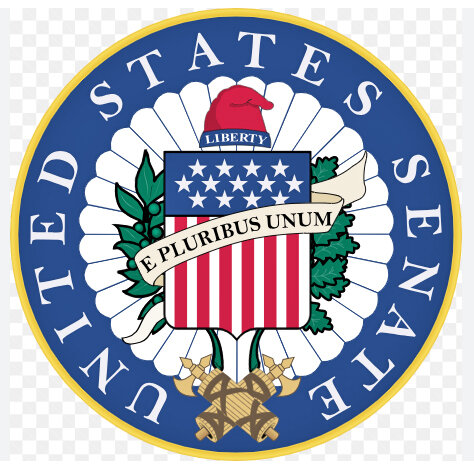Van Hollen, Cardin: Committee passes $7M for Maryland projects
$180K included for Federalsburg Activities Center
WASHINGTON – On Tuesday, U.S. Senator Chris Van Hollen, a member of the Senate Appropriations Committee, and U.S. Senator Ben Cardin (both D-Md.) announced the inclusion of $7,396,000 …

You must be a member to read this story.
Join our family of readers for as little as $5 per month and support local, unbiased journalism.
Already a member? Log in to continue. Otherwise, follow the link below to join.
Please log in to continue |
Van Hollen, Cardin: Committee passes $7M for Maryland projects
$180K included for Federalsburg Activities Center
WASHINGTON – On Tuesday, U.S. Senator Chris Van Hollen, a member of the Senate Appropriations Committee, and U.S. Senator Ben Cardin (both D-Md.) announced the inclusion of $7,396,000 in key Senate Committee legislation providing direct federal funding for community-led projects throughout Maryland.
These projects, funded at the Senators’ request, are within the Senate Appropriations Agriculture, Rural Development, Food and Drug Administration (FDA), and Related Agencies Subcommittee’s proposed funding legislation for fiscal year 2025. The projects support education, agricultural research, social services, and more for local communities across Maryland.
This subcommittee legislation, released as part of the annual Congressional Appropriations process and approved Thursday in a bipartisan vote by the full Senate Appropriations Committee, will proceed to consideration before the full Senate. Funding is not finalized until the Appropriations bills are passed by the full Senate, reconciled with the House of Representatives, and signed by the President.
These projects were included in the Senate Appropriations Subcommittee on Agriculture’s FY2025 funding legislation. Additional projects will be announced as the Subcommittees continue to release their respective bills.
Among the projects is the Federalsburg Activities Center, where funds will be used to convert a former retail space in a community center to provide youth mentorship programs and activities for seniors. The amount included is $180,000.
The other Eastern Shore project included in the legislation is the Berlin Community Center at Historic Flower Street School Site. Funds will support the development of a multigenerational community center that will house the SHORE UP! Head Start Center, programs for children and families, computer labs, and recreational spaces. It will also share the history of the segregated Flower Street School that was once at the site. The amount included is $479,000.
Additional priorities secured by the Senators in the FY25 Agriculture, Rural Development, Food and Drug Administration, and Related Agencies funding bill include:
- Chesapeake Bay States Partnership Initiative (C-SPI) report language that recognizes the important role of voluntary conservation practices in restoring waterways especially when deployed at scale. The language supports USDA’s continuation of the C-SPI and encourages the Natural Resources Conservation Service (NRCS) to target additional technical assistance to the most effective basin areas of the watershed to reduce agricultural runoff in the Chesapeake Bay.
- $840 million for Conservation Technical Assistance – a $40 million increase over FY24 – in which Natural Resources Conservation Service staff work one-on-one with farmers to conserve resources and prevent run-off. The bill also includes language expressing the Committee’s view that additional technical assistance should be provided to Critical Conservation Areas like the Chesapeake Bay Watershed because a lack of planning capacity can slow down projects in our region.
- Blue Catfish – the bill provides the USDA Food Safety and Inspection Service $1 million to cover overtime fees at invasive blue catfish facilities and directs the department to expand eligible uses of these funds to include equipment and infrastructure to promote blue catfish processing. A lack of inspection capacity and processing infrastructure have been key challenges for Maryland’s nascent wild-caught Blue Catfish industry. This funding will help to address those challenges and support the Maryland seafood industry -- improving Maryland food security and the health of the Chesapeake Bay through increased harvest of these invasive (but delicious) fish.
- Addressing supply shortages for critical medications – Given continued reports of supply shortages of important medications and devices to treat conditions such as diabetes, ADHD, cancer, the bill includes language directing the FDA to report on is implementation of shortage-related authorities, and the status of shortage related guidance documents.
- Funding for programs at historically Black 1890 Land-Grant institutions like the University of Maryland Eastern Shore:
Research: $89 million
Extension Services: $72 million
Education Grants: $30 million
Facility Improvements: $21.5 million
Scholarships: $10 million
Centers of Excellence: $10 million
Other highlights:
- $7.697 billion for the Special Supplemental Nutrition Program for Women, Infants, and Children Program (WIC), a $667 million increase over fiscal year 2024. This increase will ensure that all eligible participants can continue to rely on the essential nutrition assistance and support provided by WIC. The bill also continues full funding for additional fruit and vegetable benefits.
- Full funding for the Supplemental Nutrition Assistance Program (SNAP) to serve an estimated 42 million people per month.
- Full funding for Child Nutrition Programs – such as the School Lunch program, school breakfast program, and Summer EBT program – to ensure schools can continue to serve healthy meals to all eligible children. In 2025, this funding will help serve an estimated 5 billion lunches and 2.7 billion breakfasts to kids across the country.
- $1.019 billion – a $68 million increase over FY24 – for conservation programs. The bill also directs USDA to prioritize multi-benefit projects in the Watershed and Flood Prevention Operations program. This funding will support efforts in the Chesapeake that improve farm resilience while protecting and restoring the Bay.
- $1.87 billion – a $29 million increase over FY24 – for the Agricultural Research Service, the Department of Agriculture’s (USDA) premiere in-house research agency. One of USDA’s agricultural research centers is located in Beltsville.






